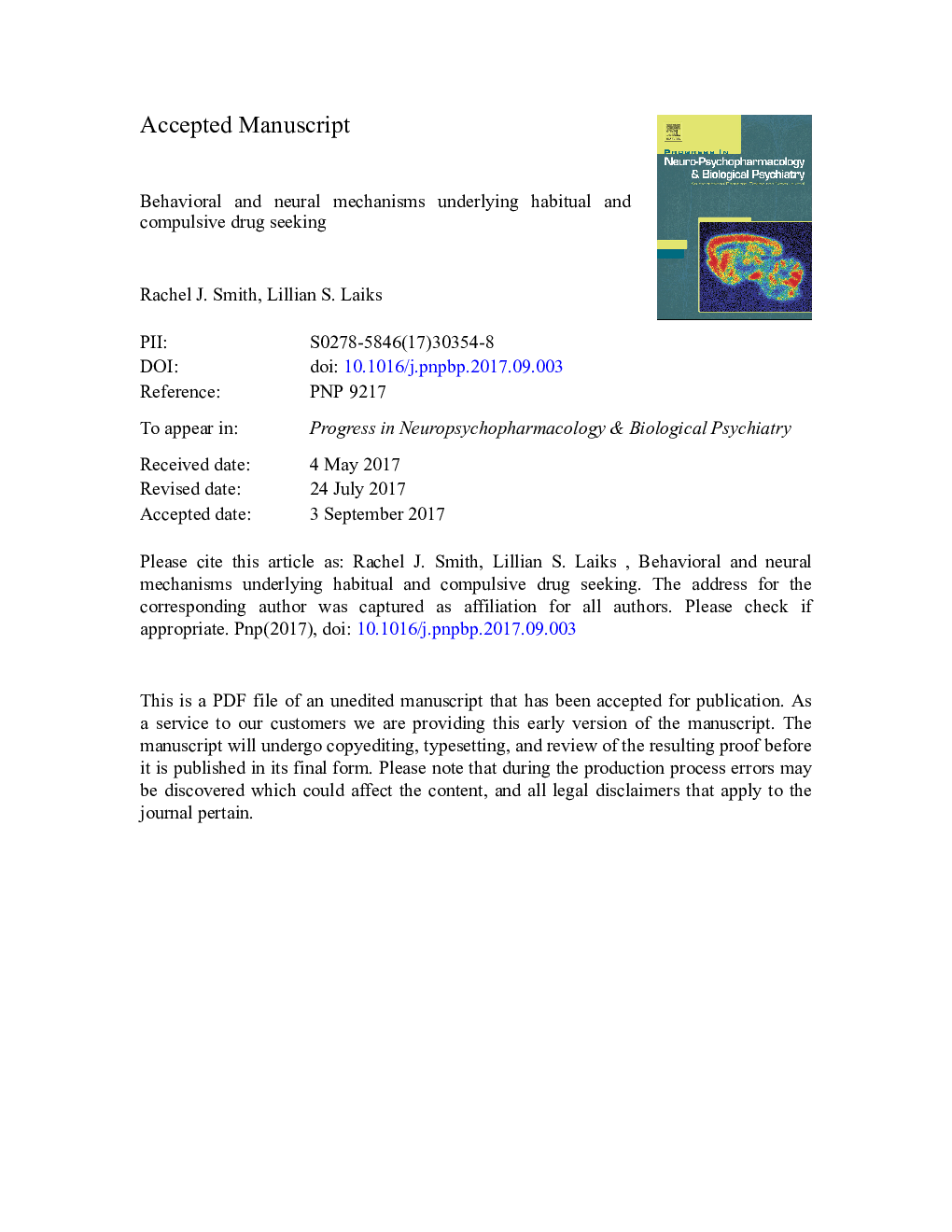| کد مقاله | کد نشریه | سال انتشار | مقاله انگلیسی | نسخه تمام متن |
|---|---|---|---|---|
| 8944022 | 1645224 | 2018 | 35 صفحه PDF | دانلود رایگان |
عنوان انگلیسی مقاله ISI
Behavioral and neural mechanisms underlying habitual and compulsive drug seeking
ترجمه فارسی عنوان
مؤلفه های رفتاری و عصبی مبتنی بر جستجوی عادت و اجباری مواد مخدر
دانلود مقاله + سفارش ترجمه
دانلود مقاله ISI انگلیسی
رایگان برای ایرانیان
کلمات کلیدی
موضوعات مرتبط
علوم زیستی و بیوفناوری
علم عصب شناسی
روانپزشکی بیولوژیکی
چکیده انگلیسی
Addiction is characterized by compulsive drug use despite negative consequences. Here we review studies that indicate that compulsive drug use, and in particular punishment resistance in animal models of addiction, is related to impaired cortical control over habitual behavior. In humans and animals, instrumental behavior is supported by goal-directed and habitual systems that rely on distinct corticostriatal networks. Chronic exposure to addictive drugs or stress has been shown to bias instrumental response strategies toward habit learning, and impair prefrontal cortical (PFC) control over responding. Moreover, recent work has implicated prelimbic PFC hypofunction in the punishment resistance that has been observed in a subset of animals with an extended history of cocaine self-administration. This may be related to a broader role for prelimbic PFC in mediating adaptive responding and behavioral flexibility, including exerting goal-directed control over behavior. We hypothesize that impaired cortical control and reduced flexibility between habitual and goal-directed systems may be critically involved in the development of maladaptive, compulsive drug use.
ناشر
Database: Elsevier - ScienceDirect (ساینس دایرکت)
Journal: Progress in Neuro-Psychopharmacology and Biological Psychiatry - Volume 87, Part A, 20 December 2018, Pages 11-21
Journal: Progress in Neuro-Psychopharmacology and Biological Psychiatry - Volume 87, Part A, 20 December 2018, Pages 11-21
نویسندگان
Rachel J. Smith, Lillian S. Laiks,
